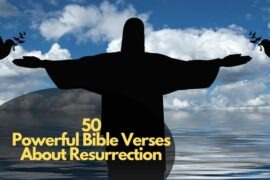In this article, we will explore the divisions within the Book of Psalms, providing insights into its structure, themes, historical context, and modern-day relevance.
The Book of Psalms, a revered part of both the Hebrew Bible and the Christian Old Testament, is a collection of religious poems and hymns.
These compositions hold immense spiritual significance and have been a source of inspiration for countless individuals throughout history.
Contents
How Many Divisions Are In The Book Of Psalms
The Book of Psalms is not a monolithic composition but rather a collection of individual poems and songs. It is divided into several sections, each with its own unique characteristics and themes. These divisions help readers navigate the rich content of the book more effectively.
The Five Major Divisions
The Book of Psalms can be broadly categorized into five major divisions:
- Book I (Psalms 1-41): This section contains a variety of psalms, including songs of praise, thanksgiving, and lament. It sets the tone for the entire book.
- Book II (Psalms 42-72): The second division continues the themes of praise and lament while also introducing royal psalms that focus on the kingship of God.
- Book III (Psalms 73-89): Book III contains a mixture of psalms, including expressions of lament, praise, and trust in God’s faithfulness.
- Book IV (Psalms 90-106): This section features psalms that emphasize God’s sovereignty, Israel’s history, and the importance of obedience to God’s laws.
- Book V (Psalms 107-150): The final division of Psalms includes a wide range of psalms, including those of thanksgiving, praise, and celebration.
The Themes and Content of Each Division
Each major division within the Book of Psalms has its own unique themes and content. For example, Book I focuses on the contrast between the righteous and the wicked, while Book IV emphasizes the importance of God’s covenant with Israel. Understanding these themes can provide deeper insights into the book’s message.
The Book of Psalms in Religious and Cultural Context
The Book of Psalms holds a central place in both Jewish and Christian traditions. It has been used in liturgical worship, personal devotions, and as a source of comfort and inspiration for believers. Additionally, Psalms have been incorporated into various cultural expressions, including music, art, and literature.
Historical Background
To fully appreciate the Book of Psalms, it is essential to consider its historical background. Many of the psalms were composed during significant events in Israel’s history, such as the exodus from Egypt and the Babylonian exile. Understanding these historical contexts adds depth to the meaning of the psalms.
Authorship and Compilation
The authorship of the psalms is traditionally attributed to figures like King David, Asaph, and the sons of Korah. However, the compilation of the Book of Psalms likely occurred over an extended period, involving multiple contributors. Exploring the origins of these poems sheds light on their diverse voices and perspectives.
Translations and Versions
The Book of Psalms has been translated into numerous languages and has various versions, reflecting the global reach of its influence. Different translations can offer fresh insights into the text, making it accessible to a wider audience.
The Influence of Psalms on Literature and Music
Psalms have left an indelible mark on literature and music. They have inspired countless poets, writers, and composers throughout history. From the works of Shakespeare to the compositions of Handel and Mendelssohn, the influence of Psalms is evident in the arts.
Modern-Day Relevance
Despite its ancient origins, the Book of Psalms remains relevant in today’s world. Its themes of faith, trust, and praise resonate with individuals seeking solace, guidance, and spiritual connection in an ever-changing society.
Interpretations and Commentaries
Scholars and theologians have offered various interpretations and commentaries on the Book of Psalms. These insights can enrich one’s understanding of the text and its theological significance.
Conclusion
In conclusion, the Book of Psalms is a profound collection of religious poetry that continues to inspire and uplift people of various faiths and backgrounds. Its divisions, themes, and enduring relevance make it a timeless source of spiritual wisdom and artistic inspiration.
FAQs
-
Who wrote the Book of Psalms?
- The Book of Psalms is traditionally attributed to figures like King David, Asaph, and the sons of Korah, among others.
-
How many psalms are there in the Book of Psalms?
- There are 150 psalms in the Book of Psalms.
-
What are some famous psalms from the Book of Psalms?
- Famous psalms include Psalm 23 (The Lord is my shepherd), Psalm 91 (He who dwells in the secret place), and Psalm 150 (Praise the Lord).
-
Are the psalms still used in religious worship today?
- Yes, the psalms are still used in religious worship in both Jewish and Christian traditions.
-
How can the Book of Psalms be applied to everyday life?
- The Book of Psalms can offer guidance, comfort, and a source of inspiration for individuals facing various challenges in life.








